#sprawa
Explore tagged Tumblr posts
Text

"Jeśli nie mogę tańczyć, to nie jest moja rewolucja" – te słowa Emmy Goldman od lat inspirują wszystkich, którzy łączą walkę o wolność z radością życia. Anarchizm nie musi być smutną misją cierpienia – to także bunt w rytmie tańca, śmiech w obliczu opresji i ekspresja, która nie daje się zamknąć w sztywnych ramach.
Czy wolność może istnieć bez radości? Czy walka o sprawiedliwość powinna oznaczać rezygnację z tańca, sztuki i pasji? Dajcie znać, jak wy to czujecie! 🔥🖤💃
#EmmaGoldman#Anarchizm#Wolność#Rewolucja#Sprawa#Emancypacja#JeśliNieMogęTańczyć#Dance Revolution#Radość#Ekspresja#Aktywizm#Historia Myśli#Cytaty#Inspiracja#Myśli Wolnościowe#Filozofia#Kultura#Niech Żyje Sztuka#Idee Mają Moc#Zmiana Społeczna#Przemyślenia
2 notes
·
View notes
Text
Kiedy weźmie mnie diabeł na chwilę lub na stałe bo ma do mnie ważną sprawę, weź przekaż że mam wiarę i że swoje przecierpiałam, niech zostawi awizo bo tu nie ma nic za frajer...
#diabeł#chwila#ważna sprawa#sprawa#wiara#cierpienie#ból#pustka#awizo#wiadomość#frajer#nastolatki#polish tumblr#depressing life#stany depresyjne#myśli depresyjne#brak chęci do życia#nie chce żyć#beznadziejność#beznadzieja#sadgirl#smutne życie#smutki#love#moje demony#demony#nie tędy droga#chandra#jebać miłość#jebać życie
18 notes
·
View notes
Text

Wpis 28. Nowenna do św. Ekspedyta w nagłej sprawie 1/3 dni
Dzień pierwszy
Św. Expedyt pełnił obowiązki jako naczelny wódz „Legii Piorunującej” w wojsku cesarza Dioklecjana. Stan wojskowy wystawiony jest na rozliczne niebezpieczeństwa tak ciała, jak i duszy, a przez częste okazje do grzechu, na utratę łaski. Lecz św. Expedyt nie tylko jej nigdy nie utracił – owszem prowadził budujące życie, przez które pociągał drugich do Boga.
Św. Expedycie, uproś mi tę łaskę, abym zawsze był(a) zadowolony(a) z położenia, w jakim mnie Opatrzność postawiła. Niech za Twym przykładem wypełniam jak najsumienniej obowiązki mego stanu, bo tylko tym sposobem mogę się uświęcić. Uproś i tę łaskę…
V. Módl się za nami, św. Expedycie.
R. Abyśmy się stali godnymi obietnic Chrystusowych
MÓDLMY SIĘ
O, Panie, który wysłuchujesz prośby ufnych i pokornych, błagam Cię, użycz mi za przyczyną św. Męczennika, Expedyta tę łaskę naglącą, na której mi tak bardzo zależy.
Ojcze nasz..., Zdrowaś Maryjo..., Chwała Ojcu..., i Litania do św. Ekspedyta.
Litania do św. Ekspedyta
Kyrie elejson,
Chryste elejson,
Kyrie elejson.
Chryste usłysz nas,
Chryste wysłuchaj nas.
Ojcze z nieba Boże,
zmiłuj się nad nami.
Synu Odkupicielu świata Boże,
zmiłuj się nad nami.
Duchu Święty Boże,
zmiłuj się nad nami.
Święta Trójco jedyny Boże, zmiłuj się nad nami.
Święta Maryjo, Królowo Męczenników, módl się za nami.
Święty Ekspedycie, niezłomny bohaterze wiary,
módl się za nami. (powtarza się)
Święty Ekspedycie, wierny aż do zgonu,
Święty Ekspedycie, który straciłeś wszystko dla pozyskania Jezusa,
Święty Ekspedycie, który chłostany byłeś rózgami,
Święty Ekspedycie, który zginąłeś chwalebnie od miecza,
Święty Ekspedycie, który otrzymałeś koronę sprawiedliwości obiecaną tym, którzy Boga kochają,
Święty Ekspedycie, patronie młodzieży,
Święty Ekspedycie, patronie uczących się,
Święty Ekspedycie, wzorze żołnierzy,
Święty Ekspedycie, patronie podróżnych,
Święty Ekspedycie, rzeczniku grzeszników,
Święty Ekspedycie, opiekunie chorych,
Święty Ekspedycie, pocieszycielu strapionych,
Święty Ekspedycie, pomocniku w naglących sprawach,
Święty Ekspedycie, który nauczasz, byśmy sprawy zbawienia do jutra nie odkładali,
Święty Ekspedycie, opiekunie w godzinę śmierci.
Baranku Boży, który gładzisz grzechy świata, przepuść nam Panie.
Baranku Boży, który gładzisz grzechy świata, wysłuchaj nas Panie.
Baranku Boży, który gładzisz grzechy świata, zmiłuj się nad nami.
K.: Módl się za nami, św. Ekspedycie.
W.: Abyśmy się stali godnymi obietnic Chrystusowych.
Módlmy się:
Łaskawy i Wszechmogący Boże, wieczna słodyczy Ciebie kochających, dzielna tarczo nadziei w Tobie pokładających, proszę Cię przez zasługi i przyczynę Świętego Ekspedyta, Męczennika Twego, nie gardź naszymi prośbami, ale racz je łaskawie wysłuchać. Amen.
1 note
·
View note
Text
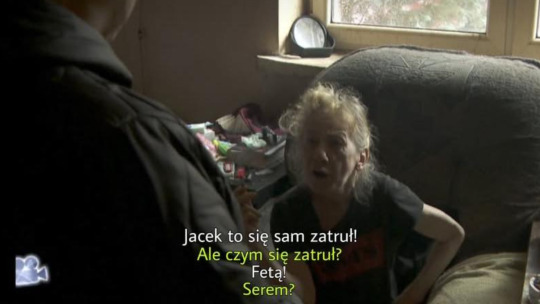
via: tvpcore (ig)
#polishcore#aesthetics#oldcore#poland#polish#polska#polska aesthetics#eastern europe#slavic#sprawa dla reportera
35 notes
·
View notes
Text
So
I was inspired by @featherglum's idea of an Ever After High kind of school for Polish literature and allowed myself to commit an OC
Let me introduce you to the newest student of Liceum Non Omnis Moriar, Apollin Łęcki, son* of Izabela Łęcka from Lalka

He is still in a very early development stage, but I love him already
#blue's doods#liceum non omnis moriar#ever after high#lalka#polish literature#izabela łęcka#muszę mu zrobić pełny design i zdecydować czy go wolę z wąsami czy bez#i oczywiście nauczyć się w końcu porządnie rysować ale to już sprawa drugorzędna#tak jest równie pretensjonalny i zadufany w sobie co matka#* przy synu ponieważ stopień pokrewieństwa jest taki sam jak przy synu braciszka Tucka z Robin Hooda#który kanonicznie chodzi do eah#czyli pokrewieństwo w stopniu Nie Pytajcie Mnie O To™
22 notes
·
View notes
Text

niby nie planowałam wrzucać, ale nie samymi igrzyskami człowiek żyje, bo co czwartek ogląda Sprawę Dla Reportera
Wiem że elżunia nie ma krzesła, ale dla niej to tam chyba bez różnicy patrząc jak siedzi w programie. Może nawet zrobię z tego cykl jakiś, nwm, galeria sławnych telewizyjnych polaków, następny makłowicz albo cejrowski
#fanart#oryginal art#its for my polish people#polish core#polish culture#polska gurom#polska#poland#jaworowicz#sprawa dla reportera#tvp#my art#elżbieta jaworowicz#SDR to moje gulity plesure jest#nie spodziewam się żeby to miało jakieś spore zasięgi#ale moja mama powiedziała że jej się podoba i że powinnam wstawić#czy wsm istnieją jakiekolwiek fanarty sprawy dla reportera?#polishcore#polishposting#polblr#polish tag#polskie rzeczy#polish stuff
88 notes
·
View notes
Text
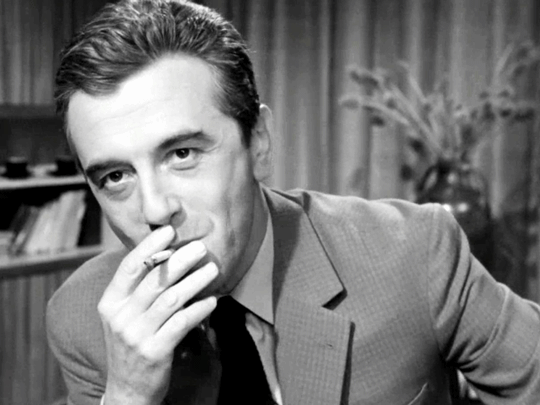
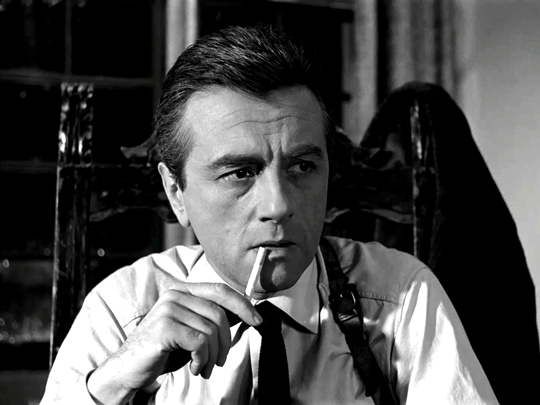
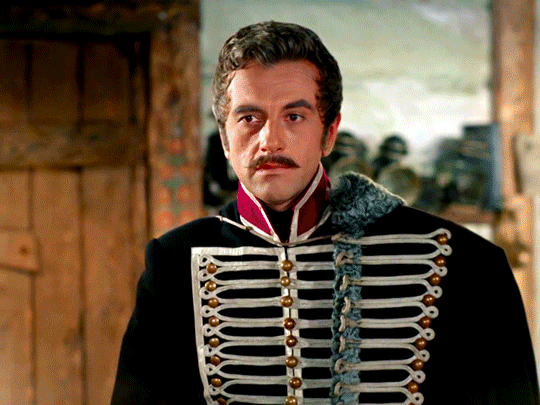

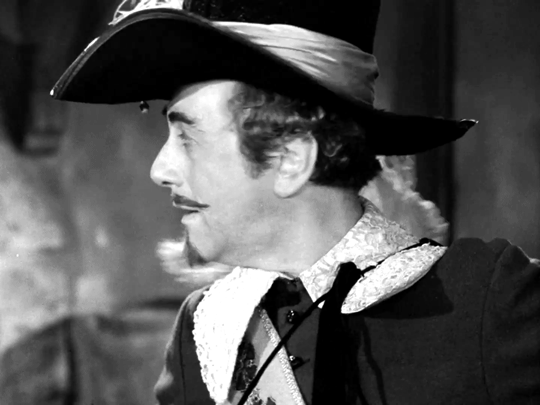
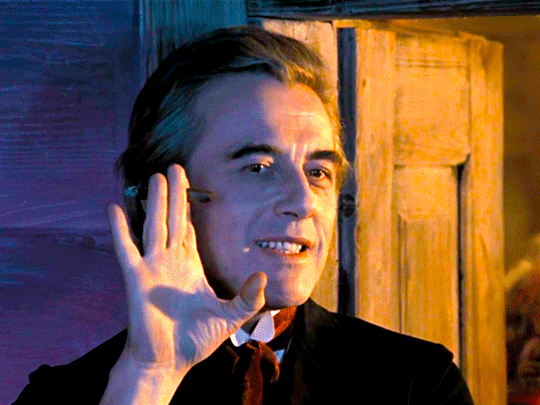
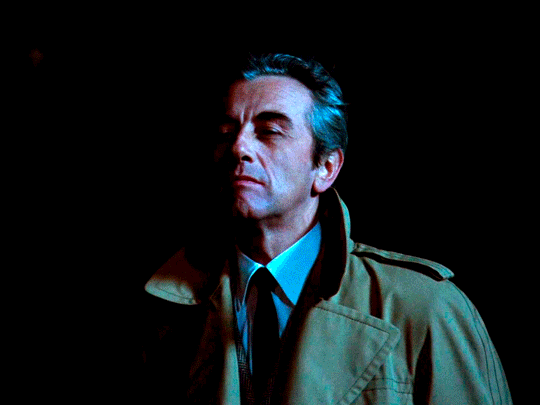
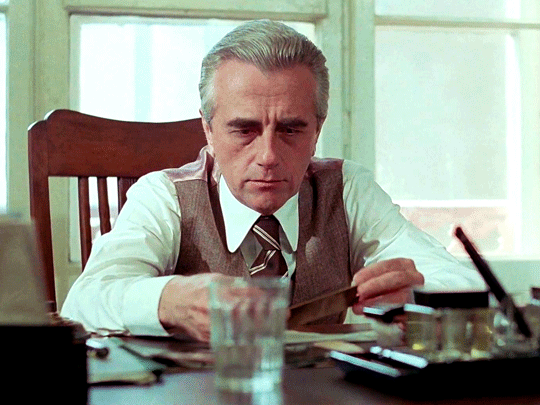
Andrzej Łapicki (ur. 11 listopada 1924)
Lekarstwo na miłość (1965) Gdzie jest trzeci król? (1966) Poczmistrz (1967) Lalka (1968) Przygody pana Michała (1969) Wesele (1972) Zazdrość i medycyna (1973) Sprawa Gorgonowej (1977)
#andrzej łapicki#uczucia jakimi darze tego człowieka są nie do wysłowienia#wszystkiego najlepszego#setna rocznica urodzin dopiero za rok#ale kto mi zakaże świętować też 99#dobór filmów na podstawie tego co znam oraz co jest dostępne w dobrej jakości#za rok mogę zrobić z innymi filmami#polskaverse#lekarstwo na miłość#gdzie jest trzeci król#poczmistrz#lalka#przygody pana michała#wesele#zazdrość i medycyna#sprawa gorgonowej
88 notes
·
View notes
Text
Btw to jest niesamowite a raczej niesamowicie NIESPRAWIEDLIWE w moją stronę że teraz pierdółki typu blok do markerów są w biedrze za dychę, i nawet mój lokalny chińczyk miał podrobione markery 2zł za sztukę jeszcze pare lat temu. Gdy ja wchodziłam w hobby markerowe? nie było kurwa NIC. Dostałam od rodziców na święta zestaw promarkerów po czym każde pierdolone 10zł kieszonkowego szło na nowy marker z lokalnej księgarni. WTEDY NIE WYSZŁY JESZCZE NAWET TE PODRÓBY Z TIGERA (które z resztą jak wyszły były serio do kitu. Nadal je mam<3)
#w sensie fajna sprawa że entry level do hobby markerowego jest teraz dużo tanszy niż gdy ja sie na tego punkcie zafiksowalam#ale kurcze portfel mnie boli jak patrzę na wszystkie moje pierdolone promarkery:(#które nawet nie przemawiają do mnie jako medium aż tak ale młodsza ja nie miała foresightu#co do tego jak rozwiną się moje zainteresowania artystyczne#tzn preferuję o wiele takie bardziej malownicze style .#markery szczególnie te wiecie. NIE brush markery . nie pamiętam nazwy tej najbardziej basic końcówki. nie są specjalnie dobre do tego
7 notes
·
View notes
Text

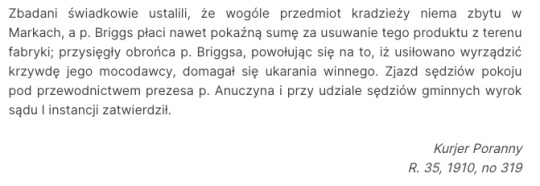
robienie afery o byle gówno (dosłownie), 1910
96 notes
·
View notes
Text
allegro mi wysyła powiadomienia czy nie chcę przypadkiem może kupić sznura,,, w słowach wielkiego polskiego poety murek gleba ptaki drzewa wszystko mi mówi żebym się zajebał
#no kurwa mać akurat miałam postować że na tym świecie się żyć nie da i cud że nie chodzimy nawaleni codziennie bo wytrzymać nie idzie#a tu cyk normalnie rozwiązanie problemu dosłownie z dowozem do domu#nic sobie nie zrobię jutro robię chaczapuri na zlecenie starszyzny rodu więc żyć trzeba#czwartek psychiatra i chyba mydlić oczu (czy też uszu bo przez telefon wizyta) jej nie mogę że jest oki#ale nie wiem czy chcę więcej leków no głupia sprawa dość tego mam#zaraz cyknie dekada na antydepresantach no nie do końca okazja do świętowania#chuj. ona mnie zna ufamy sobie jak powie że trzeba no to trzeba#depression and stuff#boże czy ja tu kiedykolwiek postuję coś dobrego chryste panie tylko jojczę i psioczę 🚬🙁
4 notes
·
View notes
Text
boże jak ja nienawidzę prima aprilis chciałabym się dzisiaj zamknąć i nie wychodzić i z nikim nie rozmawiać i nic nie czytać i nic nie widzieć. Be so for real
3 notes
·
View notes
Text
@ask-fallenangellucifer-blog co myślisz o proteście kóz o paletki lexy od rolników?
6 notes
·
View notes
Text
Sprawa dla reportera, ale zamiast godzić tych ludzi rozmową, zostają oni poddani śmiertelnie niebezpiecznym próbom, które mogą przetrwać tylko dzięki współpracy, więc mają do wyboru albo się pogodzić albo np. stracić rękę
#sprawa dla reportera#pl#tvp#chodzi o te sprawy gdzie dwóch sąsiadów się kłóci o jabłka warte jakieś 5zł a nie o chore dzieci jbc
3 notes
·
View notes
Text
Wszyscy na oriencie pierdolone sprawy karne. Czuję zaufanie moich ludzi, to jest ważne...
#orient#niebezpieczne życie#no legal#sprawa karna#zaufanie#moje mordy#moje ziomy#ziomale#bracia#bsnt#nastolatki#polish tumblr#piękny syf#kukon#rap cytaty#narcotics drugs#narkotyki#papierosy#szlugi#alkohol#alko#kryminał#zabawa#ryzyko#używki#sadgirl#beznadziejność#depressing life#stany depresyjne#złe towarzystwo
9 notes
·
View notes
Text
The stress and anxiety before making a phonecall in insane
#like i literally feel like throwing up#why do i have to be like this#why don't they read my emails?#why do i have to call them to remind them about my existence??#i weź załatw cokolwiek w polskim urzędzie#denerwujesz się i stresujesz tyle czasu tylko po to żeby potem się okazało że nic nawet jeszcze nie zaczeli dla ciebie robić#a jak juz zrobią to oczywiście nie dadzą ci znać o tym w ogóle znać tylko odłożą gdziena góre papierów#i jak idzies sie zapytać jak sprawa to się okaże że z dwa tygodnie jutak leżą i nikt ci o nich nie powiedział#borzeeeeeeeee#tak dużo typos ale kogo obchodzi
3 notes
·
View notes
Text
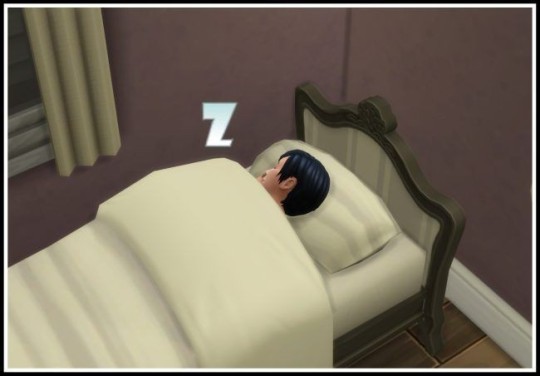
How i sleep after coming back from my 12 hrs shift at work after just standing there not being able to hold a simple convo and not talking to anybody anyway nc no one there likes me 😍
#this one coworker lady got into a situation and basically she came back to us and started explaining what happened#some ukrainian dudes threatened her or smth idk#and i thought i was also part of the conversation since i was literally there as she talked#but when i asked a question so she could further explain the topic she got all mad LOL was like#'if youre not involved then just stay silent this doesnt concern you' ok?????????#and i was silent throught the rest of the shift#didnt know which things she talked abt were my business so 😇👍#ale mnie wkurwila stara pizda#porownala mnie do plotkary z tej samej pracy ktora zawsze chce wszytsko wiedziec xddd#mf powiedzialas ze adrian przylazl i niepotrzebnie glupie rzeczy gadal a ja sie zapytalam jakie rzeczy i niby nagle to nie moja sprawa?? xd#gadasz o czyms ktos zadaje ci pytanie zwiazane z tym co gadasz i nagle to ja jestem wscibska i ciekawska?? xdddd#pierdol sie#dobrze ze 2 dni i juz mnie tam wiecej nie zobacza#praca sama w sobie nie jest ciezka i moze byc fajnie ale te stare dziady co tam pracuja tak mnie wkurwiaja ze nie moge#w sensie ja rozumiem ze jestem nowa i wgl ale miloby bylo gdyby ktokolwiek mnie zauwazyl a nie udawal ze nie istnieje#z jedna tylko babeczka udalo mi sie porozmawiac milo i ponoc nikt jej tam nie lubi tez xdddddd#idk czuje ze cokolwiek nie zrobie gdziekolwiek nie bede zawsze bede outsiderem
3 notes
·
View notes